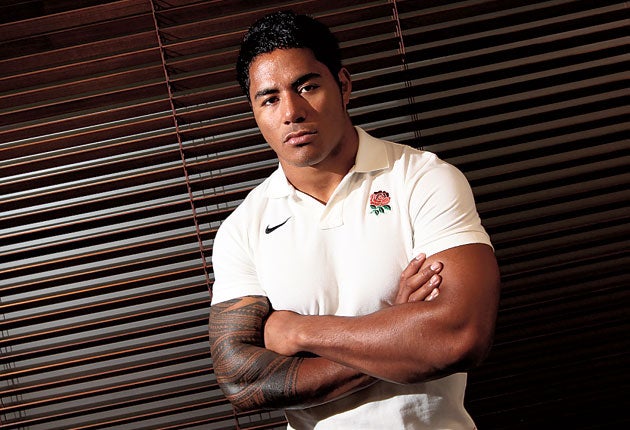Brian Ashton: English rugby needs an Eoin Morgan for creative inspiration
Tackling the Issues

The seventh Rugby World Cup begins today and as this is ostensibly a rugby column, there is only one subject worthy of discussion. There are, however, many ways of viewing a competition of this magnitude, not all of them solely through the prism of the union game. International sport in its broad range of manifestations is about performing at the very highest level, and there are many fascinating links and parallels between different disciplines.
I've written before about the shared demands of rugby union and Test cricket, and the similarities strike me once more as the big event in New Zealand shifts into gear. So let me begin by acknowledging the outstanding exploits of the England cricketers in whitewashing India and claiming the world No 1 spot – an achievement Martin Johnson and his rugby squad will be looking to emulate by reaching, and winning, their final in Auckland on 23 October.
Let me also confess to being one of the "numpties" who briefly fell into the trap of wondering whether those comprehensive Test victories were all they seemed to be in light of the lack of devil in the Indian bowling and their less than committed efforts in the field. I should have known better, having coached at elite level, and I was brought back to reality by one Andrew Flintoff when we met in the street near my home in Lytham St Annes. He rightly pointed out, in no uncertain terms, that as achieving top spot in a team sport is not something that happens regularly in this country that this was something to be celebrated properly or not at all.
Hats off, then, to two of his fellow Andrews, Flower and Strauss, and all those players who demonstrated not only a formidable collective will, but also great individual leadership when the occasion demanded. Every time a critical situation arose, someone stepped into the firing line and delivered. This is THE essential match-winning quality in high-level team sport.
There is a strong connection with rugby here: a common theme of identifying, creating and attacking space. I had the privilege 18 months ago of lunching with Graham Gooch and we exchanged views on coaching. He almost choked when I referred to him as a "batting coach". "I am a run-making coach," he said, drawing a subtle but enormous distinction. In rugby terms, he was describing the difference between an "attack coach" and someone who coaches a team to score tries – the difference between a traditional coach and a push-the-boundaries coach.
During this World Cup, I hope to see the space issue being recognised, pursued and exploited by England's players in much the same way as the England batsmen addressed it. In both sports, we have players with excellent technique that allows them to play the ball into space. I draw a similarity here between Ian Bell and Jonny Wilkinson, both of whom have honed their core skills to a degree that allows them to exploit areas left unmarked by the opposition, even in the most pressurised circumstances. Then there are the "power units", the men who create space by bludgeoning and blasting holes in defences. England's latest X-factor player, the centre Manu Tuilagi, and the often spiky Kevin Pietersen are both front-foot, up-and-at-'em types who seek to impose themselves on events. Both like to dominate and intimidate.
Finally – and here we encounter uncertainty in the England rugby camp – there is the player who, when space is at an absolute premium, pulls strings intuitively and inventively to create it. Eoin Morgan strikes me as a cricketer of this type, with the courage to cry freedom, to go exploring in a dangerous environment in the knowledge that the first mistake might well be the last. Rugby is more sympathetic in this sense: there is often a chance for a player to atone for error. Yet as far as the England World Cup squad is concerned, no name jumps off the page and makes me think: "There is our Morgan – a man blessed with the intuition and self-belief to change the nature of a contest."
Having coached England at the last World Cup four years ago, I can tell you that these contenders are much better prepared this time round. So they should be, for the circumstances – not least in terms of time spent together, of continuity of training and team-building – are entirely different. At the same time, it is equally true to say that the range and tempo of the world game has moved on since 2007. The narrow, supremely bloody-minded rugby we ended up playing four years ago will not be good enough to reach the latter stages of this tournament.
England have a sound set-piece game and their defence, while still vulnerable to an attack that quickly changes form and focus, is in pretty good shape. Then there is the continuing ability of Wilkinson to keep the scoreboard ticking over. Conditioning levels are also high.
However, they still have to find a way of prospering against the stranglehold defence, especially in the midfield channels. Only then can the wider attackers be released into the less populated defensive areas. Also, they need to find a way of combating the ferocity, technical precision, physicality and ruthless mentality we are seeing from the best sides in the tackle area, especially when the ball is on the ground. If these issues can be resolved, and the management can find an Eoin Morgan or two to do the unexpected, who knows what might happen? As for Dunedin tomorrow, I expect England to get things moving with a good win over the Pumas.
Join our commenting forum
Join thought-provoking conversations, follow other Independent readers and see their replies
Comments
Bookmark popover
Removed from bookmarks